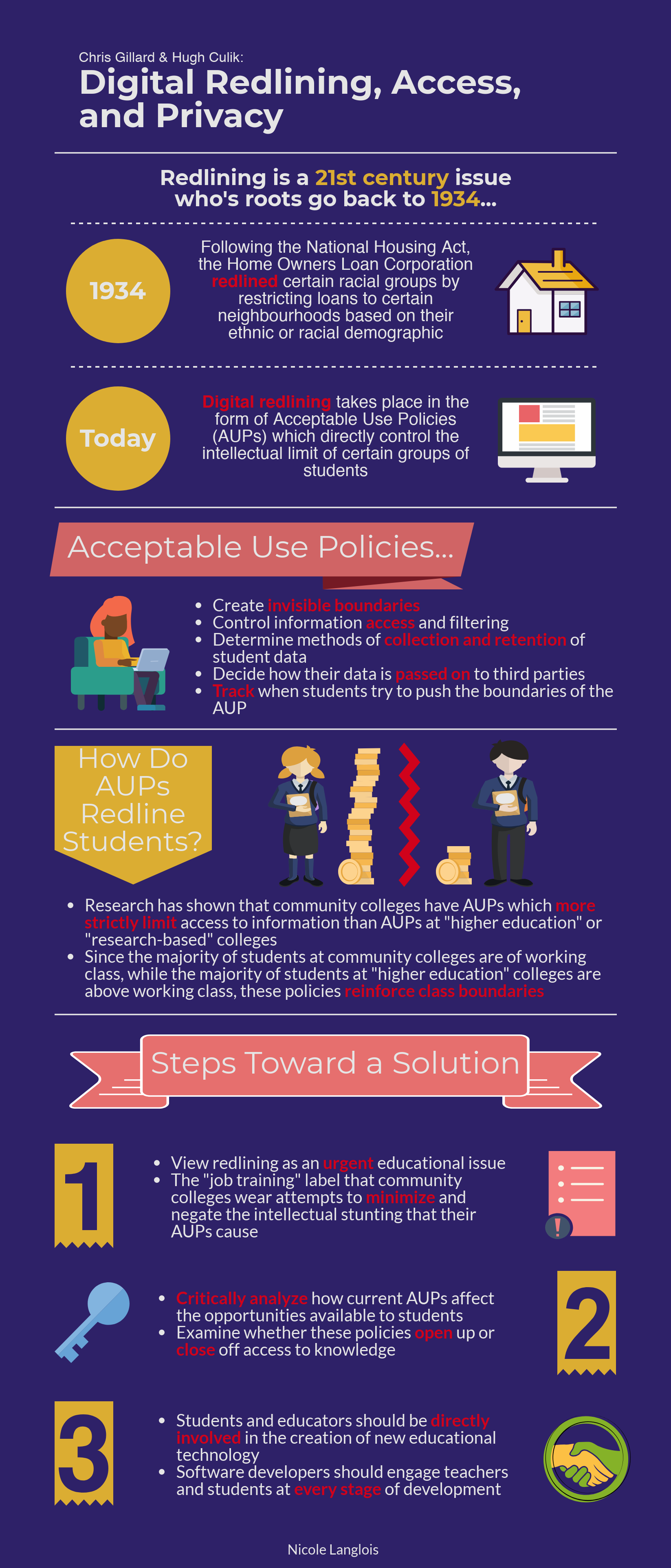Before our Digital Tech and Social Media Applications lesson last week, I had never heard of the term “redlining”. After learning about the issue, I was very intrigued and decided to do my second Multimedia Reflection on the Gillard & Culik article. After reading the article, I learned about what redlining is, and how it can be very problematic and discriminatory. I also learned that digital redlining can create invisible boundaries which make it even harder to recognize and regulate.
A point in the article that resonated strongly with me is the concept that AUPs create “invisible boundaries”. I was shocked to find out that students are not notified when they’ve searched a term that has been blocked, they simply don’t receive any search results related to the topic. Like Nina from the article, I think that most people would assume that the issue they are searching is simply not that prevalent, not that it is being actively blocked by their school’s network. It makes me think back to all the times I’ve researched topics on my university’s wi-fi; has this ever happened to me? I probably wouldn’t remember if it had because I would have brushed it off and searched another topic as Nina did. A college could argue that their AUP (which the student is asked to agree to before using their internet) clearly states which types of terms are blocked, but it is well known that most people don’t read this fine print and even if they did, it can be easily forgettable.
My question is WHY doesn’t the school notify students when they’ve searched a blocked term? If they were notified, then perhaps they could do their research on a different internet connection. I don’t see a downside in notifying students when they are pushing a boundary instead of just silently tracking it, so I am genuinely curious to hear other’s opinions on why colleges are so secretive about this.
An additional point in the article which piqued my interest was the part about how community colleges have stricter AUPs because they deem themselves as mainly “job training” so the administrators don’t think the students need access to as much information. This part infuriated me because why should administrators be the ones to deem what information is “important enough” for students to know and which information is okay to omit? The students should not be mind-controlled, they should be in charge of their own knowledge. I believe that students should be the ones deciding what they know, and how much they know because it will affect their futures. No matter what school they go to, they are still paying tuition to be there and should be allowed full access to any information they choose to seek out on the internet.
My experience using Piktochart to create my Multimedia Reflection was overall very positive. I found the platform easy to use and aesthetically pleasing. It didn’t take me long to create a beautiful, sophisticated, informative work of art that deserves an A+. I would definitely use this platform again myself, or as part of an activity or assignment in my future classroom.
My infographic is shown below. Also, here is the link.

